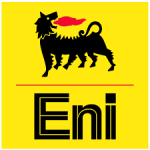Eni has been awarded “Gold Standard reporting” of the Oil and Gas Methane Partnership 2.0 (OGMP 2.0) for its commitment to reporting emissions at the highest data quality levels. OGMP 2.0 is an initiative of the United Nations Environment Program’s International Methane Emissions Observatory, aimed at setting the global standard for methane accountability and transparency in the oil and gas sector as a necessary step to effectively track and target mitigation with measurement-based data.
Eni adhered to OGMP 2.0 in 2020 and committed to setting reduction targets and progressively increasing the transparency and accuracy of methane reporting, which are prerequisites to measuring the effectiveness of mitigation actions implemented. Eni’s effort had been recognized in 2023 under the “Gold Standard Pathway” for significantly improving implementation plans for methane emissions reporting, conforming to the OGMP 2.0 recommendations. This year the company has been awarded ‘Gold Standard reporting’ for having effectively reached highest data quality levels.
Eni believes that natural gas has a role in the energy transition pathway to 2050 because of its affordability, reliability, versatility, and low carbon content compared to other fossil fuels. However, global action is needed to eliminate methane leakage throughout the natural gas value chain. Eni has set itself the goal to reach near zero methane emissions by 2030 and it has more than halved methane emissions between 2018 and 2023. Eni’s Upstream methane intensity of 0.06% in 2023 places the company among the leaders in the sector.
A key lever of Eni’s methane strategy is collaboration with other sector players and international organizations that commit to controlling methane emissions in the sector’s value chain. The company has been a founding member of the UNEP Oil & Gas Methane Partnership (OGMP) in 2014, as well as of the Oil and Gas Climate Initiative (OGCI) and Methane Guiding Principles (MGP). In 2023 Eni joined the Oil & Gas Decarbonization Charter (OGDC), a milestone initiative to align the sector towards transparent and concrete actions to reduce emissions, including methane and flaring, as well as the Global Flaring and Methane Reduction trust fund (GFMR), an initiative launched by the World Bank to support governments and operators in developing countries to eliminate routine flaring and reduce methane emissions from the O&G sector to near zero by 2030.
Eni has also signed collaboration agreements with National Oil Companies (NOCs) aimed at sharing its industry-leading experience in methane management to enable methane reduction across the sector.
Eni’s commitment to reducing methane emissions is one of the levers of company’s decarbonization plan for its operations, which also includes the progressive reduction of routine flaring emissions and investments in energy efficiency, with the goal of achieving Net Zero Scope 1+2 emissions for the Upstream business by 2030 and for all of Eni by 2035.

